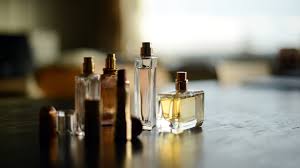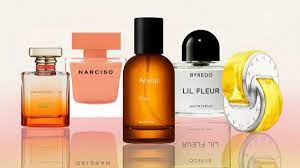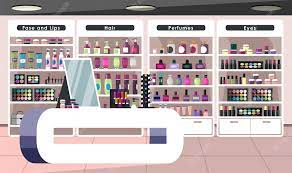
Perfume is a mixture of fragrant essential oils or aroma compounds (fragrances), fixatives and solvents, usually in liquid form, used to give the human body, animals, food, objects, and living-spaces an agreeable scent. Perfumes can be defined as substances that emit and diffuse a pleasant and fragrant odor. They consist of manmade mixtures of aromatic chemicals and essential oils.
The perfume production business in Nigeria is relatively new, but it is growing at a rapid pace. Nigerians have always had a preference for fragrances, but the country’s perfume market was dominated by imported brands. However, in recent years, Nigerian entrepreneurs have begun to take advantage of the opportunities that the perfume production business presents.
The perfume production business involves the creation and sale of fragrances in various forms, including perfumes, colognes, body sprays, and scented oils. The business is divided into two categories: the production of artisanal perfumes and the production of commercial fragrances.
Artisanal perfume production involves creating unique and exclusive fragrances that are tailored to the customer’s preferences. Artisanal perfumes are usually produced in small batches, and they are typically sold at higher prices than commercial fragrances. On the other hand, commercial fragrances are produced in large quantities and are sold in stores and supermarkets.
Starting a perfume production business in Nigeria can be a lucrative and rewarding venture, as the demand for fragrances and scents is high in the country. With a population of over two hundred million (200,000,000) people, Nigeria is a vast market for perfume production, as Nigerians appreciate good smells and are willing to spend money on quality fragrances.
In this article, we will outline the steps to follow when starting a perfume production business in Nigeria, from conducting market research to marketing your products.
Step 1: Conduct Market Research
Before starting a perfume production business, it is essential to conduct thorough market research to determine the demand for your products. This research will help you identify your target market, understand consumer preferences, and identify your competition.
You can start by visiting perfume stores, boutiques, and supermarkets to see what types of fragrances are popular and which brands are doing well. You can also conduct surveys to collect data on consumers' perfume preferences and the price range they are willing to pay for different fragrances.
Step 2: Develop Your Product Line
Once you have conducted market research and identified your target market, you need to develop your product line. This involves creating unique and high-quality fragrances that appeal to your target market. You will need to decide on the ingredients and fragrances you want to use in your perfumes and work with a perfumer or fragrance expert to create your unique blend.
It is essential to ensure that your products meet regulatory requirements in Nigeria. For instance, the National Agency for Food and Drug Administration and Control (NAFDAC) regulates the production and sale of perfumes in Nigeria, and you will need to obtain their approval before launching your products.
Step 3: Secure Funding
Starting a perfume production business in Nigeria requires significant investment, and you will need to secure funding to cover startup costs. You can explore different funding options such as loans, grants, and angel investments. You can also consider bootstrapping your business by using personal savings or crowdfunding.
When seeking funding, it is essential to have a detailed business plan that outlines your business goals, financial projections, and marketing strategies.
Step 4: Set up Your Production Facility
To start producing your perfumes, you will need a production facility that meets regulatory standards. You can rent a space or set up a production facility in your home, depending on the scale of your operations. Your facility should have proper ventilation, temperature control, and adequate storage for your ingredients and finished products.
You will also need to acquire production equipment such as mixing tanks, bottling machines, and labeling machines. It is essential to ensure that your equipment is of high quality and meets regulatory requirements.
Step 5: Raw Materials
There are different types of ingredients, base and natural essential oils that are important to get the right fragrance for the perfume you are making. These ingredients or chemicals are normally sold in the market and are available in Nigeria today. There are active chemical market in places like Aba, Ladipo market in Lagos and Abeokuta. You can get the raw materials that you need there.
The ingredients that you need for the production of the perfumes are purchased from the people that manufacturer them. Some of these ingredients can be collected from their organic sources, or from their suppliers all over the world. Below are the essential ingredients and materials to use in making your perfume stand out from competition:
Grasses
Flower
Spices
Assorted roots
Glass bottles for packaging perfumes
Leaves
Resins
Fruits
Water
Base oil
Alcohol
Sodium nitrite
Benzene
Isopropyl alcohol
Strips of paper neatly cut
A glass container which would be useed for mixing
Various essential oils
Pure ethyl
Jojoba oil used as perfume oil
Beeswax used for dry perfume
Step 6: Hire Employees
Starting a perfume production business in Nigeria requires a team of skilled employees to handle various aspects of your operations. You will need to hire staff to manage production, quality control, marketing, and sales.
When hiring employees, it is essential to consider their qualifications, experience, and cultural fit with your business. You can advertise job openings on job boards and social media or work with recruitment agencies to find the right candidates.
Step 7: Market Your Products
Once you have developed your product line and set up your production facility, you need to market your products to your target market. You can use different marketing channels such as social media, influencer marketing, and advertising to reach your target audience.
It is essential to create a brand identity that resonates with your target market and communicate your unique selling proposition (USP) effectively. You can also offer promotions, discounts, and loyalty programs to attract and retain customers.
Step 8: Monitor and Improve Your Operations
As your perfume production business grows, it is essential to monitor your operations to identify areas for improvement. You can track your sales, production costs, and customer feedback to make informed decisions.
The Nigerian perfume market is estimated to be worth over $70 million, with projections that it will continue to grow at a steady pace in the coming years. While the market is still largely dominated by imported brands, there has been a rise in local production, which is slowly gaining popularity.
In conclusion, the perfume industry in Nigeria is poised for growth in the coming years, driven by a combination of rising disposable incomes, growing demand for luxury goods, and government support for local industries. While the market is still dominated by imported brands, there is a growing demand for locally-made fragrances that reflect Nigerian tastes and traditions.
With the right support and investment, the perfume industry in Nigeria has the potential to become a major player in the global fragrance market, creating jobs and driving economic growth in the process.
Perfume production in Nigeria is a profitable business that would generate employment, revenue for the investor and tax for the government.






















